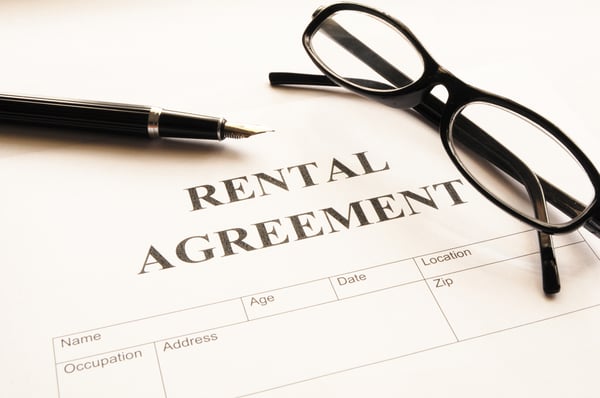There are tremendous financial incentives for owning McKinney investment properties: long-term, stable wealth through the development of a real estate portfolio can be a serious draw. However, investors with multiple properties know that everything doesn't always work out with your properties as planned.
- Your screening process may have failed to prevent a "Professional Tenant" from invading your McKinney investment properties.
- Your tenants may have seemed ideal at the outset—but they've since snuck in unauthorized pets or other tenants outside of the lease agreement.
- Your current tenants might be violating the lease agreement in other ways, such as with illegal drugs or other activity on your property.
- Rent has been late for the past three months—or not paid at all.
While not every instance outlined above is worthy of pursuing eviction immediately, several of these issues can snowball into an avalanche that can bury your investment properties in expensive legal proceedings. Eviction should always be a last resort for your McKinney investment properties—but if you absolutely can't get a tenant to see the light, you need to protect your assets.
In this blog, we'll dive into some of the details surrounding eviction proceedings that are crucial for investors to understand when dealing with a growing investment portfolio.

Before we go further, please note: any time you consider eviction, consult your legal counsel. This article isn't legal advice. Consider these tips with caution when considering the process of eviction for your properties.
What Does the Eviction Process Entail?
When you decide to pursue eviction, you're formally providing your tenants notice that you've decided to end their tenancy prior to the termination of the lease agreement. In Texas, you must legally terminate the tenancy before you can officially evict a tenant—and notices must be served in writing.
Keep in mind; you can't evict a tenant without just cause. Disliking a tenant is not enough to justify the eviction process. You must have a valid reason—usually related to repeated lease violations—that serve as supporting evidence to pursue eviction proceedings.
Optional Solutions to Avoid Eviction
While the state of Texas doesn't require you to try remediation prior to pursuing a justified eviction, in some cases, mediation beforehand can save you far more than it would cost you otherwise. A great example of this in the case of missing rent would be to try and enact a payment plan that can help your tenants return to good standing.
For tenants with irregular pay schedules, such as those who just started a new job, this can often be the saving grace they need to get back to speed with their payments after budgeting has failed.
Another means to avoid eviction is the "cash for keys" method, wherein you exchange an agreed-upon sum to have your troublesome tenant peacefully exit the property.
However, every cash-for-keys offer should come with some conditional ground rules:
- Both you and your tenants must agree on the exchange amount and the time-frame for the vacancy.
- The tenants must then leave your McKinney investment properties in good condition.
Failure to meet either of these crucial components means you can step back from the table and pursue eviction.
Keep in mind that executing either of these plans doesn't have to be done alone: when you work with a trusted property manager in McKinney, you have a partner who can help protect your rentals from the start. Improvements to your screening process and a dedicated hand in management during solutions can work wonders to preventing the need for eviction from your properties.
When All Else Fails
If you've exhausted all available options and eviction seems inevitable for a tenant in your McKinney investment properties, it's time to formalize the eviction process.
Give the Notice to Vacate
In Texas, you must give errant tenants for a standard lease term a 3-day notice to vacate before you can pursue an eviction lawsuit with the courts.
Keep in mind that tenants can fight the eviction process—and the most common defense they will use is that somehow, somewhere, you as the landlord fudged the process. Follow the law to the letter, and bring in competent legal counsel to help you execute it and protect your investments.
Filing the Eviction Lawsuit
The three days are up—and your tenant hasn't budged. It's time to file an eviction lawsuit. You must wait until after the Notice to Vacate deadline has passed—otherwise, the tenant can use this opportunity to have your lawsuit thrown out.
Working with your legal counsel or a property manager that has evictions experience can help you avoid this blunder.
Appearing in Court
After filing the appropriate paperwork, the courts will notify you through your attorney or property manager of the court date for your case.
If you're working with an attorney or a property manager in McKinney, they'll be the presence that shows up to and represents you in court. They should come prepared with everything they need to protect your assets should the tenant also appear in court.
To that end, you should be documenting crucial information from the start. Copies of your air-tight lease, move-in and move-out inspection reports, communication between you and the tenant—all of these are vital pieces to protecting yourself during an eviction, and they should always have "physical" documentation somewhere.
If the tenant doesn't appear in court, the default judgment is made in favor of the landlord (or investor). Keep in mind that even if the courts rule in your favor, you cannot evict the tenant yourself: evictions must be carried out by an appointed officer of the law.

Protect Your Investment With Property Management
When you're staring down an eviction for one of your properties, reality sets in fast. As an expert property manager in McKinney, we find that the expense and hassle can often be avoided from before the onset of any tenancy when investors keep a close eye on a few key components associated with their properties:
- Your air-tight lease: The lease for any of your McKinney investment properties should never be a prefabricated model found online. These free, online leases often have hidden language that can weaken the position of an investor. Work with your property manager or attorney to draft an elegant—and all-encompassing—lease.
- Your screening process: Your screening process should always be thorough, efficient, and legal. It must be applied equally to all tenants in every circumstance—no exceptions. A weak or faulty screening process is how Professional Tenants can easily slip through and become a nightmare for your investment properties. Don't let that happen to you!
- Thorough documentation: Whether it's an in-person inspection of the property or just a check-up email, every interaction with your tenants should be documented "on paper" with supporting visual evidence. In the event of an eviction, this component—coupled with your legal counsel or property manager—is what saves your bacon!
Doing all of the above alone is where we see investors take the heaviest hits in moments like an eviction. No matter how detail-oriented you are, whether you have five investment properties or twelve, it's easy to lose track of or cut corners on details that matter—until it's too late. Don't let this be you: rely on an expert property manager in McKinney to help protect you and your investments!
Reach out to RentHub Property Management and take advantage of our considerable wealth of free resources! We know that when your investments succeed, we succeed too—which is why we offer crucial tools like our Tenant Eviction Checklist absolutely free. Download your copy today, and let us help you protect your assets!
Download The Checklist





